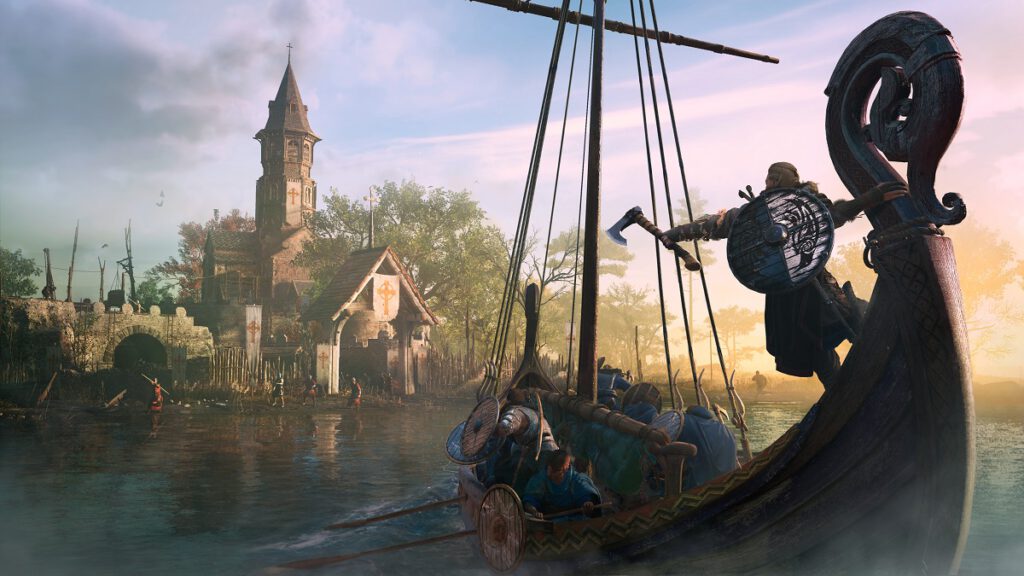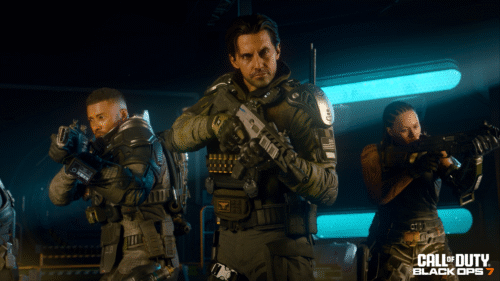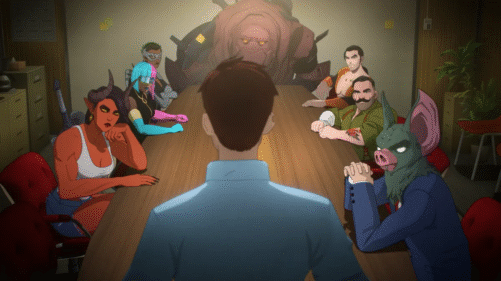The word that comes to mind when playing “Assassin’s Creed Valhalla” is massive. This is more than just a linear piece of storytelling. It’s an experience in world-building that’s designed to take not just hours or days but weeks of your life. To see everything hiding in every corner of this enormous game would take the most completist approach to gaming (and reportedly over 100 hours of your life, a number that’s still reportedly 40-50 if you only do the main story missions). And there are times when that massive scope feels truly awe-inspiring. When you synchronize a portion of the map in “Valhalla” and the camera swoops to reveal the landscape around you, there’s a vibrant sense that the horizon goes on forever and you couldn’t possibly see everything that’s over it. There is still so much of this game for me to see, and yet it’s starting to feel like the scope of the game is both its greatest asset and biggest flaw. While there are literally hundreds of encounters in “Valhalla,” many of them start to feel repetitive after a while. It’s a game one has to really devote their time and energy to, because casual playing reveals its weaknesses.
If you’re only familiar with the world of “Assassin’s Creed” as a vaguely remembered trailer for a movie starring Michael Fassbender, you should know that this entire franchise could be called massive. It’s one of the biggest of the century—“Valhalla” is the 22nd entry in the series that started with “Assassin’s Creed” in 2007 if one includes all mobile, handheld, and spin-off games. A blend of stealth and melee combat made these games into juggernauts, and Ubisoft started producing them at an annual rate, even releasing companion games like “Assassin’s Creed Chronicles.” There are also mobile games and a planned TV series. Comics, toys, board games—this is an industry more than a mere franchise.
In terms of quality, I have played at least some of every main release and it’s been a rollercoaster. For every truly accomplished game like “Assassin’s Creed IV: Black Flag” and the excellent “Assassin’s Creed Odyssey” from just two years ago, there’s a title that feels clunky (like “Assassin’s Creed Unity”). These games are notorious for glitches (and “Valhalla” is particularly thick with those in its early days) and inconsistent gameplay, but they can also be transcendent in terms of their scope and ambition. What’s fascinating about “Valhalla” is how often it reflects both sides of this series. It’s a visually gorgeous game—especially on the PS5, where the load times are incredibly short—but it sometimes feels cluttered with minor side missions and objectives. My advice would be to stick to the story—look at the gorgeous world around you but let the minor time-killers spread across it remain incomplete.

“Assassin’s Creed” games have taken to building their stories and gameplay from a culture. For example, 2017’s “Assassin’s Creed Origins” unfolded in ancient Egypt; “Odyssey” transported gamers to Greek history and mythology. This installment is the “Viking Game,” a perfect fit for the action style of this franchise (although fans should know that the “assassin” aspect of the game hasn’t been completely discarded in favor of axes to the face). And the developers here clearly considered the larger-than-life aspects of Viking Mythology when conceiving “Valhalla.” You can’t make a “small” Viking game. And so the mountains here are massive, snow-covered creations; the oceans go on for miles; the landscape is daunting; the combat is brutal and bloody. It is a game about territory and legacy, told on a broad canvas that reflects the culture of its story.
“Valhalla” is set in 873 A.D. and tells a fictional story of what is basically a Viking invasion of England. After conflict in Norway—that takes hours before the game even presents an opening title screen—Eivor (who can be played male or female) and their brother Sigurd take their supplies and head to England, essentially taking territories as they go. Much of the first 20 hours or so of “Valhalla” consists of clearing outposts across the English landscape, building factions of supporters and enemies as you go. As you do, you’ll build your settlement, opening new sections of it in a way that feels more RPG-esque than some of these games. The game also jumps back to present day to reunite players with Layla Hassan, the modern-day protagonist from “Origins” and “Odyssey” who is technically experiencing this saga via simulation. The narrative incorporates mythology of the culture like Asgard and Odin while staying away from an obvious comparative in the “God of War” series.
The game that sprung to mind more often than “GoW” while playing “Valhalla” was last summer’s “Ghost of Tsushima,” a strong candidate for 2020’s Game of the Year. Both games open with brutal violence, sending their protagonists off on journeys for vengeance and control. Both games employ open-world structures with RPG elements that emerge from their cultures. Both games balance large storytelling segments with quieter mini-games like crafting a haiku in “Ghost” or participating in a “flyting” match in “Valhalla.” And yet there’s a streamlined cohesion to “Ghost” that’s sometimes lacking here. The major and minor missions come together into a whole there, whereas they sometimes feel like padding here.

However, the concerns about repetition and padding in “Valhalla” fade away when it’s really working. There are missions and settings in this game that are simply breathtaking—those times when the “big swing” of ambition that the developers took here really pay off. Like its incredibly varied landscape, it’s a game of incredible highs and lows, although way more of the former than the latter. In 4K on the PlayStation 5, even with the occasional frame rate issue, it’s one of the best-looking games of all time. The detail in the nature around Eivor is stunning. You’ll pause just to look at the ripples on the water or the snow falling through the trees. It’s an experience. (And should be noted that the audio is similarly accomplished with great voice work and score.)
In the end, “Assassin’s Creed Valhalla” works best if you allow yourself to get completely lost in it. A quick “pick up and play” might produce a repetitive fight or two or a mini-game that feels silly. But those aspects are really only very small parts of this experience in the end, and those weaknesses fade against the backdrop of the bigger, gorgeous picture. I still have dozens of hours to spend in this world, and I’m still eager to do so.
Ubisoft provided a review copy of this game.












